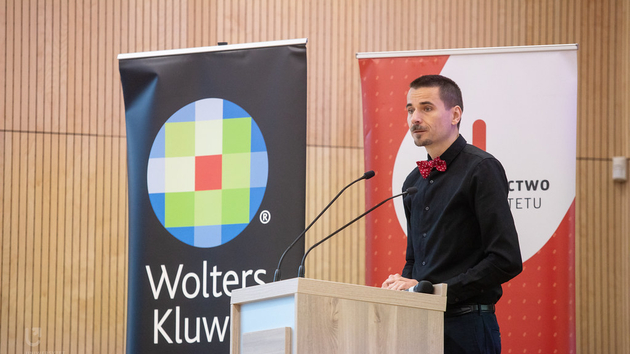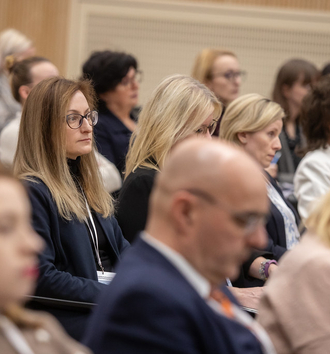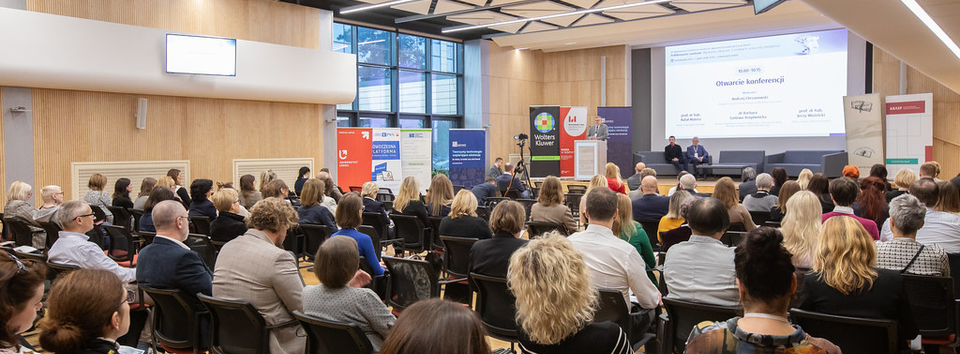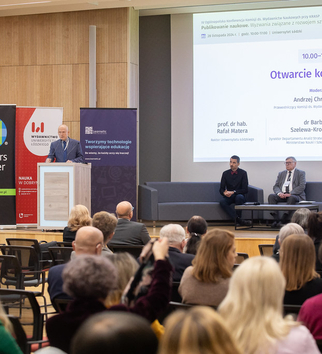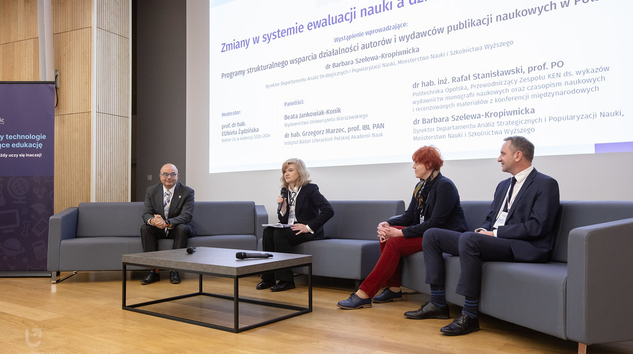Artificial intelligence has significantly accelerated changes in academic practice. The quality of scientific or didactic work will increasingly be determined by knowledge of AI tools and their efficient use. We are talking about a process that requires attention and education. As noted by Aurelia Grejner, President of the Association of Higher Education Publishers:
It's a very complex tool that we're still learning. You could say it's a Ferrari, and we use it like a bicycle to get from point A to point B. We don't know all its capabilities yet
During the discussion, the panellists devoted a lot of attention to the opportunities created by AI. They talked about, among other things, the effects of its implementation on science and business, providing practical examples. They focused in particular on ethical issues related to the creation of original and quality content. The speakers also discussed the role of universities, which are facing a discrete digital revolution. Many elements of artificial intelligence accompany us every day, of which we are not fully aware.
We cannot distinguish between what is a creation of artificial intelligence and what is a creation solely of humans
– notes Prof. Dominika Kaczorowska-Spychalska.
The conference discussion also focused on changes in the system of evaluating science and assessing monographs and scientific journals. Participants also discussed structural support programmes for authors and publishers. The Association of Higher School Publishers and the Polish Chamber of Books submitted their ideas for assessing and scoring publications. This is a subject of lively discussion.
Importantly, it did not end with words. As Andrzej Chrzanowski, Chair of the Committee for Scientific Publishing at CRASP, stated:
It is important that our discussions not only result in specific conclusions but also translate them into certain actions.
This is a commitment for all interested parties before the next CRASP conference.
The event was attended by over 120 people. The conference was opened (on behalf of the Rector of the University of Lodz, Prof. dr hab. Rafał Matera) by the University of Lodz Vice-Rector for Popularisation of Science and Education, dr hab. Krzysztof Pabis.
The speakers and moderators included:
- Prof. dr hab. Elżbieta Żądzińska, Rector of the University of Lodz in the term 2020–2024;
- Andrzej Chrzanowski, Chair of the Committee for Scientific Publishing at CRASP;
- Dr hab. Krzysztof Pabis, the University of Lodz Vice-Rector for Popularisation of Science and Education;
- Prof. dr hab. Jerzy Woźnicki, President of the Polish Rectors Foundation;
- Prof. Dominika Kaczorowska-Spychalska, University of Lodz.
We encourage you to view photos by Bartosz Kałużny from the Communications and PR Centre, University of Lodz.

